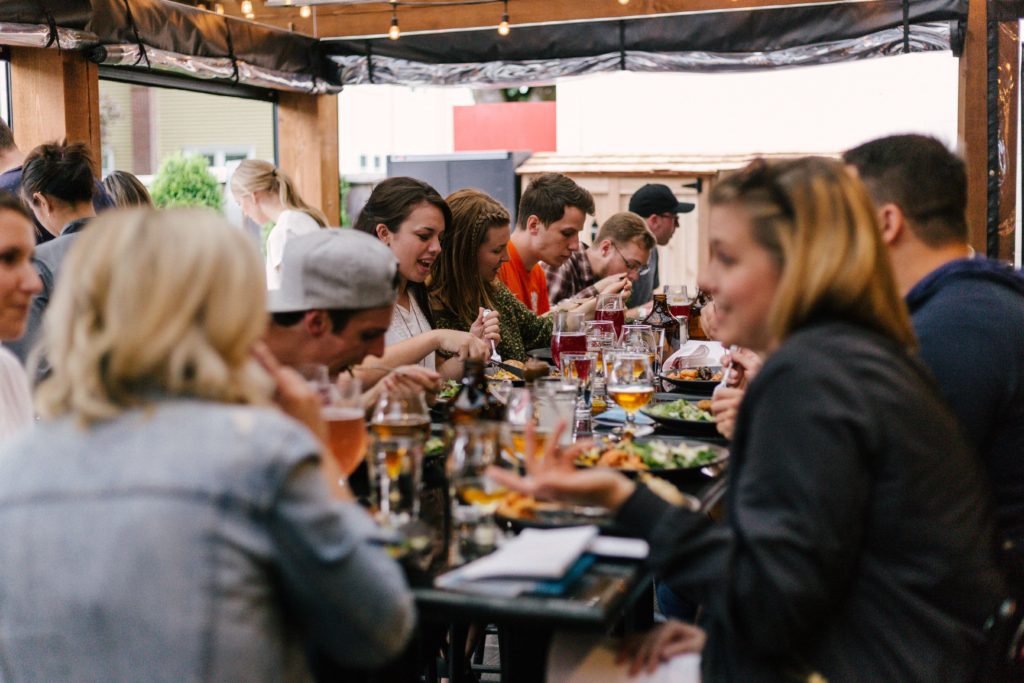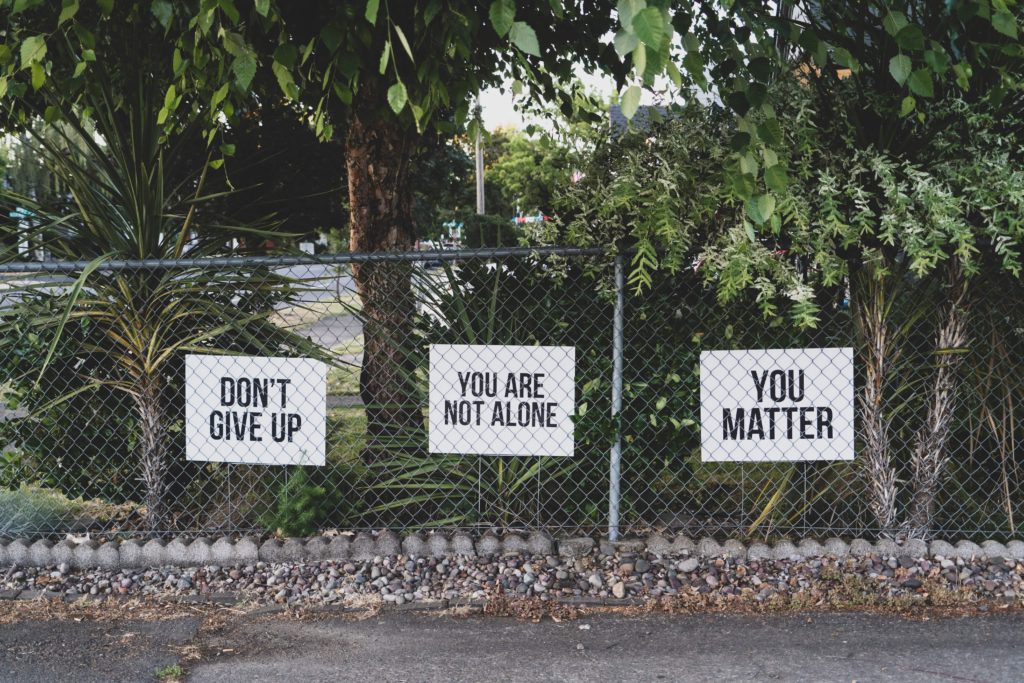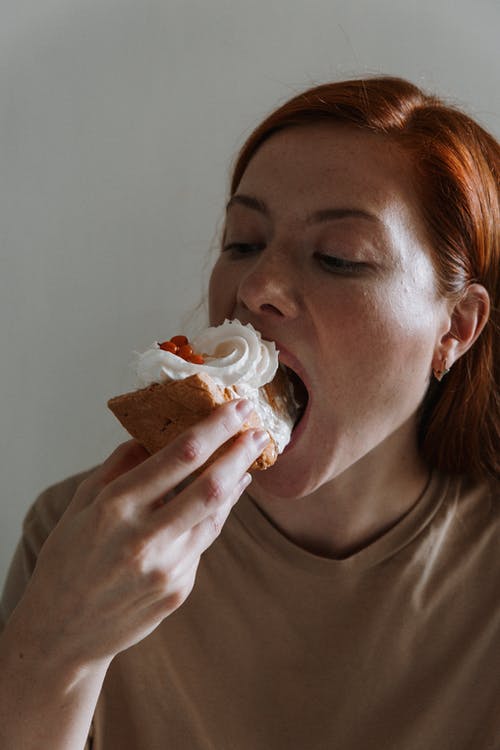“When I lived with anorexia nervosa” is a phrase which has become increasingly surreal to say.
It feels almost like it all happened to someone else…
But I’m still going to start this blog with that very phrase.
When I lived with anorexia nervosa, I was tough on the outside and more often than not terrified on the inside.
Here are 3 of the things I feared, not sometimes but
every.
single.
day;
- That I Would Never Recover

I remember years ago chatting with a fantastic friend one afternoon on her couch and she asked what I was most afraid of.
At that point in my life, I was fresh at talking openly about living with anorexia nervosa and she was a relatively new friend, but I answered honestly.
I said something along the lines of “that this will never change”.
That my life will always be this hard.
That this (anorexia) is my future.
My gosh do I feel for that past version of Bonnie.
Wow, to have been so stuck that she could barely imagine a life any other way amazes me to know.
But it was true.
There must have been some hope inside me to continue to try but I distinctly remember the feeling that full recovery just wasn’t possible for me. Maybe for others, but not for me.
And it saddens me to know there’s others living this way.
Every day I get emails and phone calls from mums, dads, partners and people stuck in eating disorders all over the world lost with what to do, having often tried “everything” and running out of confidence that things can be different for themselves or for their loved one.
I know it can feel so true that this is your life, and all your life will ever be because I’ve lived it.
I’ve believed it.
I’ve felt it.
And it’s only through living the other side that I can see in hindsight it was never true.
Anorexia nervosa does not have to be a life sentence.
Whatever [eating disorder] you’re doing does not have to be a life sentence.
2. That Other People Had Eating Disorders

I was on a 24/7 unconscious hypervigilant alert mode for eating disorder behaviours in others.
I was obsessed with seeing eating disorders in other people.
I saw eating disorders everywhere.
And I cared sooooo much.
It was far more important to me that the random person sitting beside me on the overnight bus as I travelled through Bolivia ate breakfast than it was that I ate breakfast.
It was bizarre.
I knew I was doing it at the time, I knew I didn’t want to be doing it, but I also “knew” it was just how I was.
It was normal to me that I felt this concern towards what others ate and didn’t eat.
It was exhausting.
Just like everything else about living with an eating disorder.
And just like everything else about living with an eating disorder how much you know, how much you try to talk yourself out of it, how much hate and shame you (or others) load on you about it you feel utterly powerless for it to be any other way.
And to be honest you are.
You are until you learn how to not be…
3. That People Would Give Up on Me

I heard this one spoken aloud a few months ago by a woman at the eating disorder inpatient centre I work at as a casual dietitian, and it stuck with me because of how real this fear was for past me.
She told me how surprised she was that after she’d had a particularly difficult day where she’d been unable to do any of the things, she knew she should be doing no one had given up on her.
Of course, the unsaid truth behind her surprise was that she’d been given up on before.
I couldn’t help but think this was likely a fear 100% of people who’ve ever sought help during their recovery from an eating disorder have felt at some point.
It certainly was for me.
The fear that people (friends, family, medical professionals) will label you impossible and give up on you if you can’t do what they tell you to do (your inability to do these things being the reason you’re seeking their help in the first place…)
It’s not an unfounded fear either because many health professionals no matter how well meaning they are have been taught that anorexia nervosa is a “chronic” illness. That is something there is no cure for and that the patient will have to manage for the rest of their life.
It’s not an unfounded fear because it is beyond humiliating to have a logical, reasonable conversation about what you “should” be doing and that you understand eating is actually going to help you, to talk about your goals and hopes and dreams for the future, to come up with the most beautiful recommendations should you have to give them to someone else in your position and then an hour, two days or maybe just 5minutes later be faced with a situation where all your logic and reasoning goes out the window and you’re right back in there doing the eating disorder feeling, thoughts and behaviours with zero control…
When the reality is all this is far from a sign that you are “beyond hope” and more an indication that 1. you have an eating disorder and 2. you are doing recovery.
Anyone who has ever done recovery from an eating disorder will tell you that it was not a smooth upwards trajectory.
Far from it!
Anyone who had ever done recovery from an eating disorder will all tell you they didn’t wake up and decide they wanted to be recovered and that was the day they recovered.
They will tell you it takes far more than wanting it.
They will tell you there were moments, days, months, maybe even years of doubts, backslides, questioning, frustration and fear.
If you’re struggling it’s not a sign that you are failing, that it’s not possible or that you aren’t trying hard enough, it’s a sign you just haven’t fully learned all the skills and resources you need to live without an eating disorder yet.
You can learn them but that will take as long as it takes.
Recovery takes as long as it takes.
Summary

I wonder what comes to mind when you think about some of those things you fear?
Do you relate to any of these 3 examples I’ve shared from my own lived experience?
If you do or if you have an entirely different set, please know that there are ways of working with each of them.
There are ways of no longer feeling these things as a daily driving force underlying your existence.
Of course, possible is far from saying recovery and change is inevitable or easy because what it is is neither of those things.
But the truth is no one is beyond hope.
You are not beyond hope.
…And you will need more than hope to recover.
With my whole heart I hope you found this information useful and inspiring.

Become Great. Live Great.
Bonnie.



